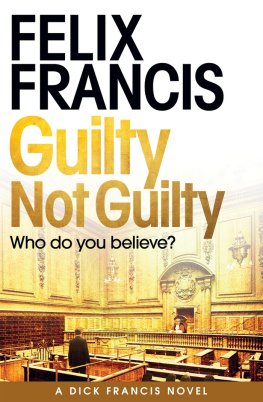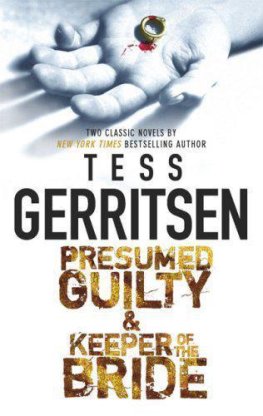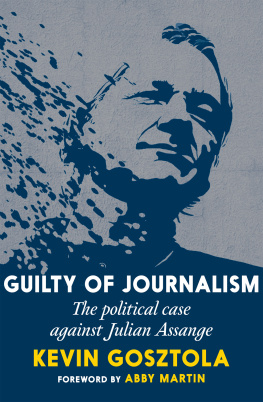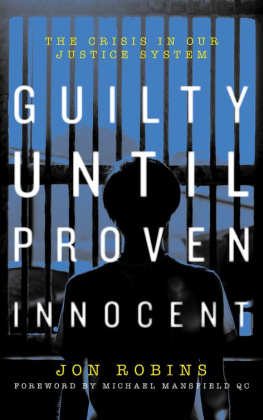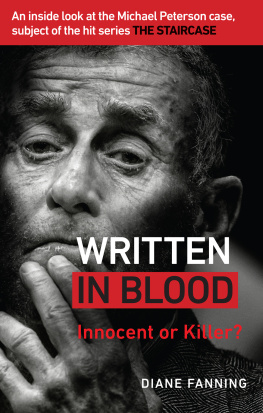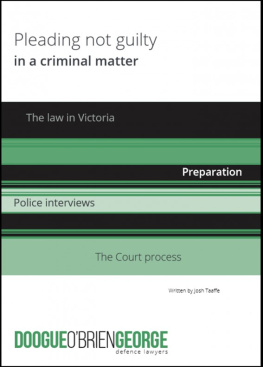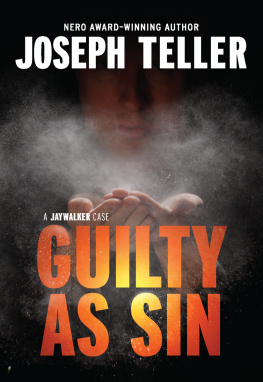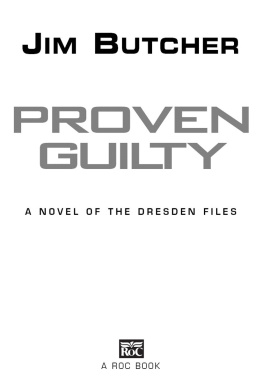Judge Jed S. Rakoff - Why the Innocent Plead Guilty and the Guilty Go Free
Here you can read online Judge Jed S. Rakoff - Why the Innocent Plead Guilty and the Guilty Go Free full text of the book (entire story) in english for free. Download pdf and epub, get meaning, cover and reviews about this ebook. publisher: Farrar, Straus and Giroux, genre: Politics. Description of the work, (preface) as well as reviews are available. Best literature library LitArk.com created for fans of good reading and offers a wide selection of genres:
Romance novel
Science fiction
Adventure
Detective
Science
History
Home and family
Prose
Art
Politics
Computer
Non-fiction
Religion
Business
Children
Humor
Choose a favorite category and find really read worthwhile books. Enjoy immersion in the world of imagination, feel the emotions of the characters or learn something new for yourself, make an fascinating discovery.

- Book:Why the Innocent Plead Guilty and the Guilty Go Free
- Author:
- Publisher:Farrar, Straus and Giroux
- Genre:
- Rating:5 / 5
- Favourites:Add to favourites
- Your mark:
- 100
- 1
- 2
- 3
- 4
- 5
Why the Innocent Plead Guilty and the Guilty Go Free: summary, description and annotation
We offer to read an annotation, description, summary or preface (depends on what the author of the book "Why the Innocent Plead Guilty and the Guilty Go Free" wrote himself). If you haven't found the necessary information about the book — write in the comments, we will try to find it.
Why the Innocent Plead Guilty and the Guilty Go Free — read online for free the complete book (whole text) full work
Below is the text of the book, divided by pages. System saving the place of the last page read, allows you to conveniently read the book "Why the Innocent Plead Guilty and the Guilty Go Free" online for free, without having to search again every time where you left off. Put a bookmark, and you can go to the page where you finished reading at any time.
Font size:
Interval:
Bookmark:
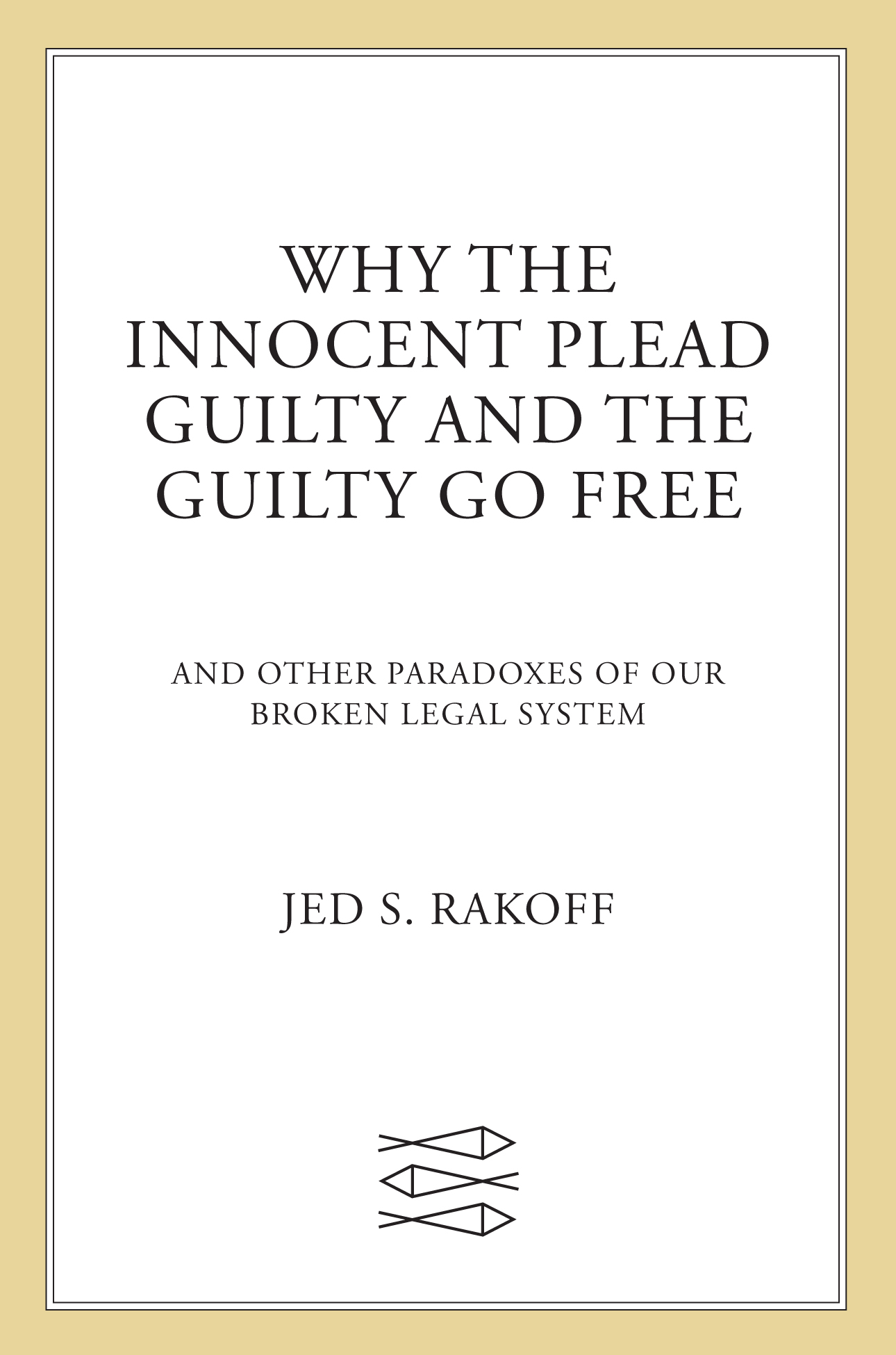


The author and publisher have provided this e-book to you for your personal use only. You may not make this e-book publicly available in any way. Copyright infringement is against the law. If you believe the copy of this e-book you are reading infringes on the authors copyright, please notify the publisher at: us.macmillanusa.com/piracy.
To the memory of
Robert B. Silvers
(19292017)
A sense of justice is central to human endurance. No matter what wrongs we suffer or misfortunes we withstand, the belief that justice will ultimately prevail is part of what keeps us going. Nowhere is this belief more deeply felt than in the United States, and with good reason, for over the decades we have made progress, however haltingly and imperfectly, in dealing with poverty, racism, sexism, homophobia, and many other challenges.
But at present our system of justice is facing more than one challenge that it seems unable to come to grips with, perhaps because our faith in it may blind us to its shortcomings and contradictions. How can we be fully proud of a system that locks up more human beings than are imprisoned in any other nation? How can we have confidence in a system that too frequently convicts innocent peopleoften on the basis of dubious forensic science and shaky eyewitness testimonyand sometimes even coerces them into pleading guilty to crimes they never committed? How can we accept a system that imposes the death penalty when we know full well that a meaningful number of those sentenced to death will later be proved innocent? How can we pretend we are adhering to the Constitution when we have created a criminal justice system in which the jury trial has all but been eliminated? How can we claim that justice is equal when we imprison thousands of poor Black men for relatively modest crimes but almost never prosecute rich, white, high-level executives who commit crimes having far greater impact?
How can we justify using the convenient excuse of the never-ending war on terror to narrow rights guaranteed by the Constitution? How can we accept Congresss and the Supreme Courts limiting to the point of near extinction the hallowed constitutional right to habeas corpus relief? How can we applaud the Supreme Courts view of its ever-more-confined role in combating excess by the president?
Finally, how can we tout our system of civil justice as a remedy for wrongs when the great majority of Americans cannot afford to go to court at all, and are often kept out of court even when they wish to avail themselves of its benefits? In these and other important ways, our system of justice is failing its mission.
That our current system of justice is beset by hypocritical pretensions, conundrums, paradoxes, and shortcomings is not a realization I came to easily. When, after serving as a federal prosecutor and then a criminal defense lawyer, I first became a federal judge a quarter century ago, I still thought the system pretty much delivered justice as it was supposed to and just needed some tweaking here and there to get it right. But my subsequent experience and that of my judicial colleagues too often revealed that our system of justice was seriously flawed, and after a while I thought it my duty to speak out about these deficiencies. I tried to do this, first and foremost, in the actual cases that came before me; but over time, recurring patterns emerged in those cases that made me believe I had an obligation to bring these shortcomings to public attention as well.
About six years ago, I began to write articles calling attention to these problems for The New York Review of Books (to whose editors I owe a huge debt). This book (which was completed in the summer of 2020) further develops the themes of those articles and also addresses additional limitations of our legal system that have become evident to me from the work I have done on var-ious committees of the National Academy of Sciences, the MacArthur Foundation, and the National Commission on Forensic Science. Finally, the book offers some specific suggestions on how to deal with these problems; but it also argues that real reform must come from an increased recognition by everyday people that our system of justice is broken and needs to be fixed.
For too long, too many judges have been too quiet about an evil of which we are a part: the mass incarceration of people in the United States. It is time for more of us to speak out.
The basic facts are not in dispute. As of 2019, more than 2.2 million people were incarcerated in U.S. jails and prisons, a 500 percent increase over the past forty years. Although the United States accounts for about 5 percent of the worlds population, it houses nearly 25 percent of the worlds prison population. The per capita incarceration rate in the United States is about one and a half times that of second-place El Salvador and third-place Turkmenistan, and more than six times the rate of neighboring Canada. Another 4.75 million Americans are subject to state supervision imposed by probation or parole.
Much of the increase in imprisonment has been for nonviolent offenses, ranging from drug possession to property theft. And even though crime rates in the United States have mostly declined since the early 1990s, the number of incarcerated persons has either risen or remained at levels above 2 million, partly because more people are being sent to prison for offenses that once were punished with other measures, but also because the sentences are longer. For example, even though the number of violent crimes has materially decreased over the past two decades, the number of prisoners serving life sentences has steadily increased, so that one in nine persons in prison is now serving a life sentence. In addition, at least 500,000 of the 2.2 million persons now incarcerated have not been convicted of any crime but are simply there because, having been arrested, they could not make bail.
And whom are we locking up? Mostly young men of color. Over 840,000, or nearly 40 percent, of the 2.2 million U.S. prisoners are African American males. Put another way, about one in nine African American males between the ages of twenty and thirty-four is now in prison, with at least an equal number subject to probationary supervision. If current rates hold, one-third of all Black men will be imprisoned at some point in their lifetimes. Another approximately 440,000, or 20 percent, of the 2.2 million U.S. prisoners are young Hispanic males.
This mass incarceration, which also includes about 800,000 white and Asian males, as well as over 100,000 women (most of whom committed nonviolent offenses), is the product of statutes that were enacted, beginning in the 1970s, with the twin purposes of lowering crime rates in general and deterring the drug trade in particular. These laws imposed mandatory minimum terms of imprisonment on many first offenders. They denied bail to many persons arrested on minor charges that were eventually dropped. They propounded sentencing guidelines that initially mandated, and still recommend, very substantial prison terms for many, if not most, offenders. And they required lifetime imprisonment for many recidivists. These laws also substantially deprived judges of sentencing discretion and effectively guaranteed imprisonment for many offenders who would have previously received probation or deferred prosecution, or who would have been sent to drug treatment or mental health programs rather than prison.
Font size:
Interval:
Bookmark:
Similar books «Why the Innocent Plead Guilty and the Guilty Go Free»
Look at similar books to Why the Innocent Plead Guilty and the Guilty Go Free. We have selected literature similar in name and meaning in the hope of providing readers with more options to find new, interesting, not yet read works.
Discussion, reviews of the book Why the Innocent Plead Guilty and the Guilty Go Free and just readers' own opinions. Leave your comments, write what you think about the work, its meaning or the main characters. Specify what exactly you liked and what you didn't like, and why you think so.

